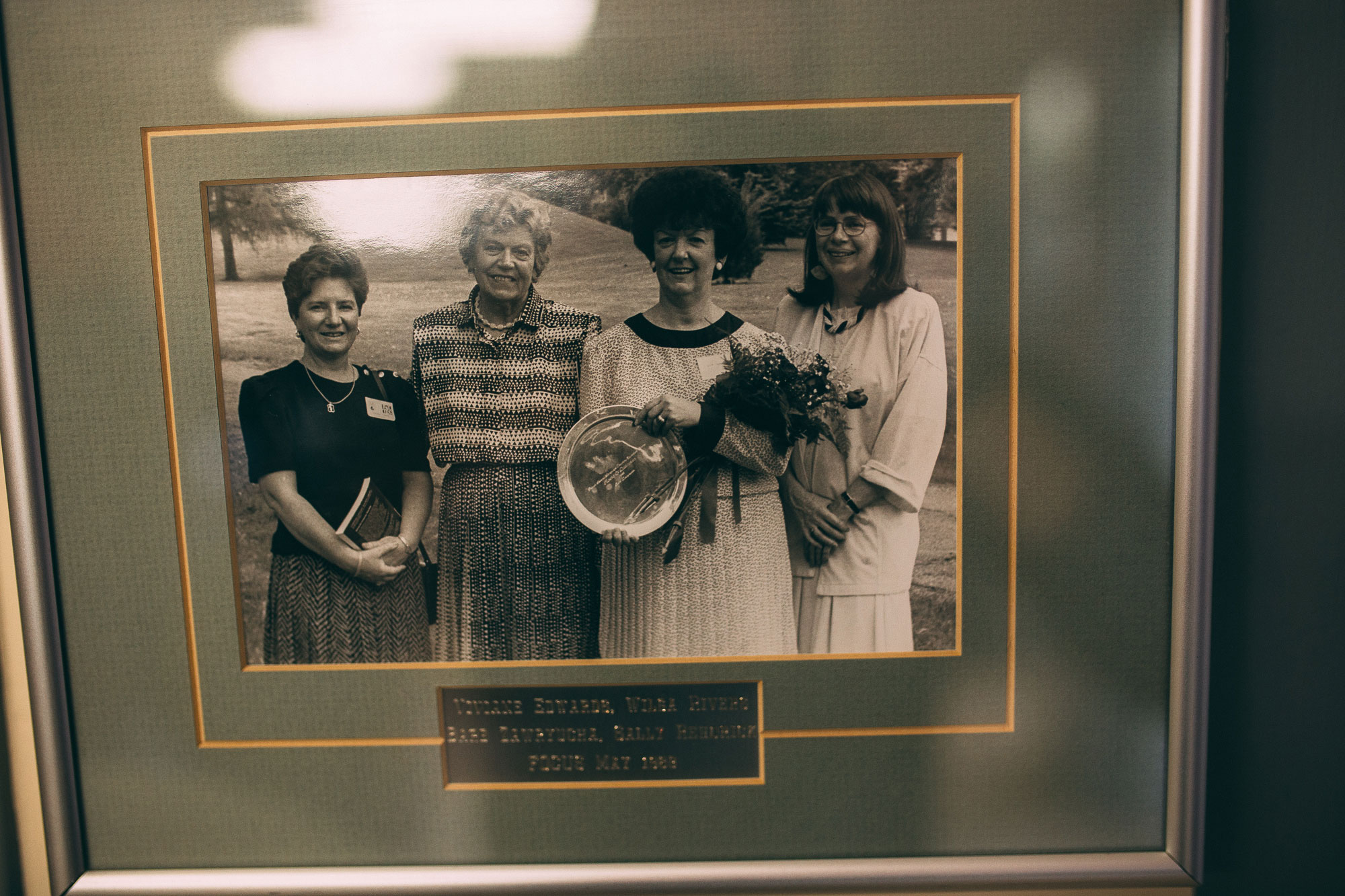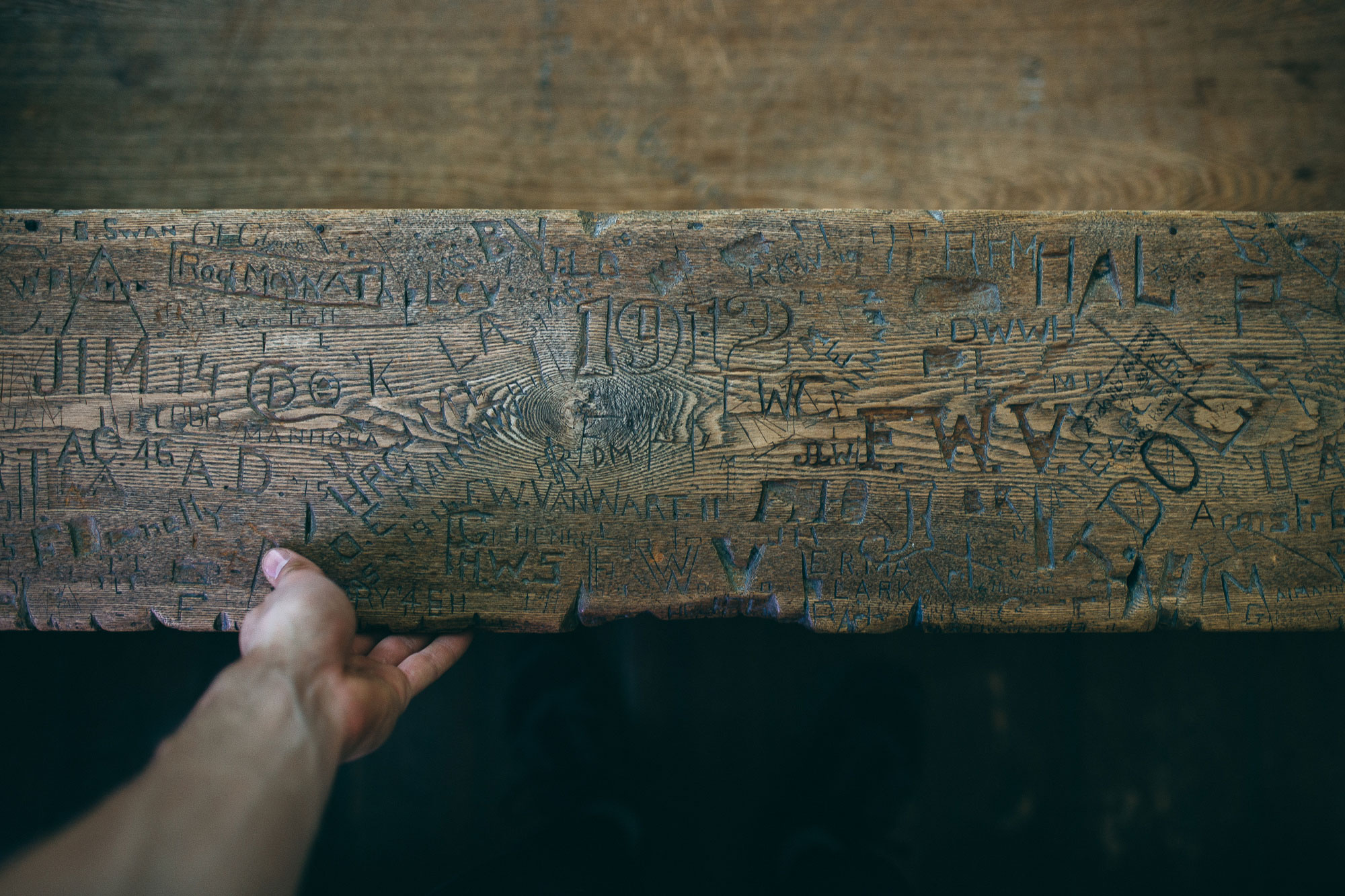“It had been my lifelong dream to study at the University of New Brunswick,” Viviane said. “I knew that’s what I wanted to do.”
Viviane’s high school was a French convent, which I unfortunately don’t know any more about because the story really begins in the lineup for the registrar at the start of the 1959 fall semester at UNB. She had her acceptance letter in her hand and the money she needed to pay for tuition in her pocket. This was the start of a new part of her life.
And then she was told that it wasn’t.
The registrar looked at her letter, at her secondary school and French last name, looked back at her and said, “You can’t be here. You’re French.” Viviane was stunned. She knew there were many francophone students at UNB, and she’d already been accepted. So she thought there must have been a mistake, but as a young student she had no idea what to do next.
Perhaps I can’t really imagine the panic of the situation, but I’m close enough to that age that I can feel some of it. 18 years old, wide eyes, heart pumping. Wanting to cry but trying to hold it back. Wanting to run straight back home where I know where I belong. I’m extrapolating my own feelings onto Viviane’s experience, of course, but I can imagine it. As if the first day of university wasn’t stressful enough.
She ended up convincing another administrator to let her pay tuition. Her entire claim to placement in the university came down to a single receipt.
“I didn’t know what to do.” Viviane told us, “I knew which courses I wanted to take, but I couldn’t register for any course because I didn’t have that piece of paper signed by the registrar. Courses started. I started going to them.” Professors noticed that she wasn’t on the list, but assumed there must have been a clerical error. Nothing was computerized back then, so there could easily have been a mistake. She kept attending classes and at the end of the semester passed enough of them to go on but all the while feeling like a fraud, that she should not be there.
“In October, in the math class, a secretary knocks at the door and she has a letter for the prof, and I know it’s for me. I just know it’s a letter for me. I was shaking. As soon as class is over I duck in the bathroom, and I open the letter and it’s from the dean. The dean wants to see me.”
She went to the dean’s office, with no doubt in her mind that she was about to be expelled. The dean, however, commented that with French-speaking soldiers moving to Gagetown from Québec the university needed to spruce up its French language instruction.
“He said, ‘We were wondering if you would like to teach a course.’”
That was the bombshell of the story. For the next three-and-a-half years, Viviane taught in the French department, and was never admitted to the university. Even to the day of her graduation she was afraid she’d get caught.
After a successful career as a teacher and later as a consultant with the New Brunswick Department of Education, she eventually moved on to the university as a professor and in 1987 founded what has become the Second Language Research Institute of Canada, an internationally recognized centre that is still based at the University of New Brunswick. She was named professor emeritus upon her retirement.


Before I conclude, it’s worth saying that this story isn’t black and white. This was a story of discrimination, but also a story full of laughter. Viviane has since come to believe that it was a mistake, a misunderstanding by the registrar and not a rejection of her registration because she was French. Much has happened since then, besides. New Brunswick elected its first Acadien premier the following year in 1960 and is still the only officially bilingual province in Canada. The Université de Moncton was opened in 1963 and is now one of the leading French universities in eastern Canada.
So there’s a lot of things you can take from this story. You can relate it to the long history of anti-French discrimination in Canada and sexism in post-secondary school education. You can admire the pluck and resilience of a young woman facing those issues entirely on her own. You can smile at the thought of Viviane being named professor emeritus by the very university that tried to turn her away. You can take all of those things and more.
The takeaway for me is that our history is alive, and our past is not as far away as we would often like to believe. I wonder what stories like it are happening today. Who are we turning away now, through acts of racism, classism and sexism? Who is being denied entry into our borders and our institutions—and might they hold the same potential that Viviane did in 1959?